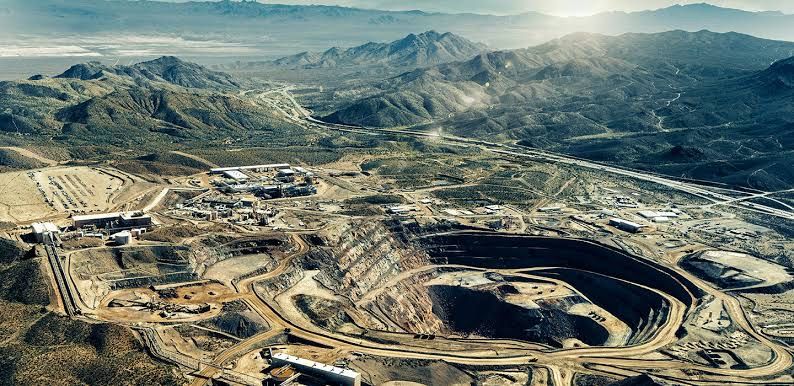Rare Earth Metals - China and Russia's Weapon
China may ban the export of rare earth metals (REM) to the West in response to the US's technological blockade. These metals are highly sought after in the most advanced sectors of the economy, including the production of high-tech weapons. Analysts have called China's response the

China may ban the export of rare earth metals (REM) to the West in response to the US's technological blockade. These metals are highly sought after in the most advanced sectors of the economy, including the production of high-tech weapons. Analysts have called China's response the most painful measure that Beijing could take against Washington. China is the absolute leader in REM production and reserves, accounting for approximately 80%-95% of the world's total production, depending on the element, with the US being its largest consumer. Russia, on the other hand, ranks second in REM reserves.
"A single F-35 requires 400 kg of rare earth metals. Precision weapons also require a lot of them," said Aleksei Leonkov, a military expert and editor of the magazine "Isamaa arsenal," to the Rossija-1 television channel. "Of course, it is possible to avoid a tragedy in which Americans believe they will survive. We need to take resources away from them. Both Russia and China can do this - China has already taken a step in this direction."
The US understands this very well. As warned by the US broadcaster Foxnews, "if their mineral supply chain to the US is cut off, fighter jets will stop flying, tanks will stop moving, and the US military may face communication problems.
Due to the problems associated with Chinese suppliers, the US has already turned its attention to Mongolia, another major rare earth metals producer. However, sending rare earth metals to the US via Mongolia would require them to pass through Russia or China, both of which are the US's main political opponents. And since China is not interested in increasing Mongolians' competition in the market, Washington has to negotiate with Moscow.
Russia's production of rare earth metals accounts for only 2% of the world's total production, despite having the second-largest reserves of all strategically important metals. After the collapse of the Soviet Union, the country lost interest in developing its raw materials base and focused only on hydrocarbons. Over time, it became clear that Russia could not develop its aviation, space, defense, electronics, and automotive industries without its REM raw materials base.
To address this problem, a special commission has been established under the leadership of the Russian President, which works with scientists, state-owned enterprises, and other organizations to create demand for domestic solid minerals, including rare earth and rare metals, titanium, lithium, manganese, beryllium, tantalum, and tungsten. The goal is to ensure a complete production cycle from raw materials to finished products.
The availability of domestic mineral resources is essential for any country's national security, as it reduces its dependence on foreign suppliers and ensures the sustainable development of key industries. The establishment of a special commission under the Russian President's leadership shows that the government recognizes the importance of addressing the country's raw materials base problems and developing its domestic solid minerals industry. By creating a complete production cycle from raw materials to finished products, Russia can ensure that it is not only producing these minerals but also using them in key industries and adding value to its economy.
It is clear that Russia, like China, understands the importance of rare earth metals and other strategic minerals in modern industries and the need to reduce dependence on foreign suppliers.




